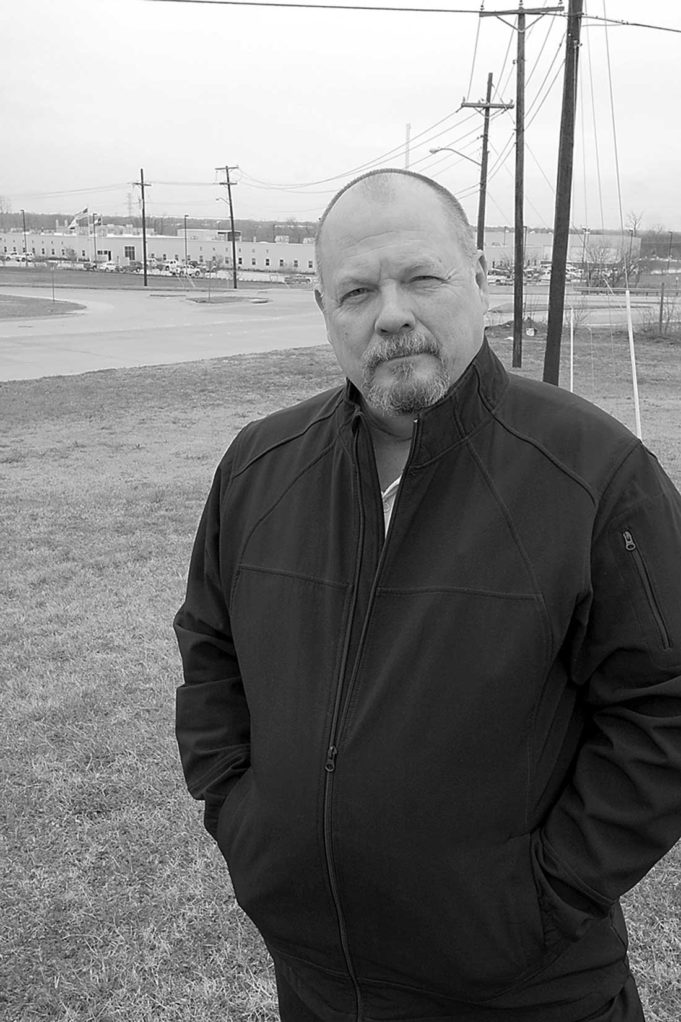Eastsiders and West Arlingtonians are gearing up for their own version of the Dakota Access Pipeline fight.
Blue Stone Natural Resources, the ninth-largest natural gas company in the state, is trying to build an injection well – depositories of production wastewater produced via natural gas, filled with noxious and poisonous gasses – within a quarter of a mile of the west side of Lake Arlington, also known as the drinking water reservoir for all of Arlington, a city of nearly 370,000 people.
Arlington and Fort Worth aren’t having it. Both cities have filed official protests against BlueStone with the Railroad Commission, the state agency that oversees oil and gas drilling. Both cities cite their respective gas well ordinances, which prohibit injection wells within city limits. The proposed well sets those ordinances against state law, which allows the Railroad Commission to trump home rule in the case of oil and gas production.
An injection well sends thousands of gallons of gas-well wastewater at high speed into deep formations underground. They have been tied to earthquakes in Texas, Oklahoma, Arkansas, Ohio, and elsewhere by geologists. In the case of the proposed BlueStone injection well, residents are concerned about seismic activity – dozens of gas well gathering lines are already in place beneath Lake Arlington, and even small earthquakes might cause some of those lines to rupture, poisoning the reservoir.
“We, the City of Fort Worth, have protested the proposed well, citing our city ordinance, and a hearing has been set on the matter for late May,” said Tom Edwards, lead gas well inspector for Fort Worth.
The hearing, he said, will involve “a bunch of technical people talking about the pros and cons of the well.”
The pro-position, Edwards said, is that BlueStone has said that most of the 25,000 barrels of gas-well waste the company plans to inject into the well will be piped in, rather than brought in by trucks, lessening the volume of trucks in the area. The anti-position is that injection wells are prohibited within the city limits by city ordinance because of both the toxic nature of the waste being injected — much of which escapes into the air around the wells — and the potential for causing earthquakes.
Cameron Dullea, a spokesperson for BlueStone, which operates 300 wells within Fort Worth city limits, told me in an email that “approval of this disposal well would remove some 70 trucks a day that are currently being used to transport water from our operations.”
Removing that many trucks from the roads per day would reduce BlueStone’s cost of eliminating its water waste –– trucking the material out of the area is more expensive than eliminating it where it is being produced.
I asked why 70 trucks per day are being used to haul gas-well waste liquids given that BlueStone’s Fort Worth wells were already drilled when the company purchased them from Quicksilver Resources. Richard Keil, executive vice president of public affairs for his own company, responded for BlueStone, noting that the company has roughly 100 wells in the Lake Arlington area and that they produce an aggregate 9,100 barrels of water with gas daily that needs to be eliminated. That number of barrels requires about 70 trucks a day.
“This is common water produced by all gas wells and not the toxic water” produced by fracking, Keil noted.
BlueStone said they would be laying new pipe from the gas wells to the injection well but that “the costs associated with doing so will not affect [the well’s] commercial viability.”
Kim Feil, longtime anti-gas drilling activist, thinks that BlueStone might get their way because House Bill 40 — passed into law in 2015 — gives exclusive jurisdiction over gas and oil well production to the state.
“Honestly,” Feil said, “all BlueStone has to say is that it’s commercially reasonable for them to want to inject their fluids close by where they are produced rather than driving them out of town, and they might get their approval, regardless of both Fort Worth’s and Arlington’s protests.”
Fort Worth is hoping that their protest will stand because the city ordinance has been in place for longer than five years, the length of time at which ordinances generally have rightful standing.
If allowed, the BlueStone well would be only the second injection well operating in Fort Worth. Dale Resources drilled one in use by Chesapeake Energy on the city’s East Side near I-30 several years ago. A second injection well was drilled, but that permit allowed only for injecting a very limited amount of waste daily, making it financially unfeasible, and it was capped prior to ever having been used.
In an email, Ramona Nye, spokesperson for the Railroad Commission, noted that the BlueStone application was for a non-commercial disposal well (meaning it cannot accept waste from other companies on a for-hire basis) and that it was “reviewed by Railroad Commission technical staff and determined to be administratively complete.”
The determination that the application was administratively complete means that “it meets the Commission’s disposal well rule requirements established to protect public safety and natural resources, including water,” wrote Nye.
Not everyone agrees with the Railroad Commission’s safety assessment.
“There are at least two things wrong here,” said Louis McBee, a longtime Fort Worth activist. “All injection wells have to go through the water table to get beneath it to inject the waste, and that is a dangerous proposition in itself. But having an injection well near gas wells, as proposed in this case, heightens that danger because of the potential of seismic activity that can damage the thin layer of casing around the gas wells that keep gas from leaking into the water table. So I don’t know what the Railroad Commission’s standards are for injection wells around gas wells and water sources, but there really is no such thing as a safe injection well.”
Another concern brought up by Gary Hogan, a longtime Fort Worth activist and a member of both the 2006 and 2008 Gas Well Drilling Ordinance committees, is the possibility that the non-commercial status of the injection well could be changed to commercial status once the well is in place.
“Once that well is in place, [BlueStone] will have to have a way to pay for it,” Hogan said, “and that might be making it commercial.”
Keil wrote that “the well is intended only to be used for wastewater produced by BlueStone.”
But Hogan’s concern is not out of the question.
According to the Railroad Commission’s Nye, “to change a disposal well from non-commercial to commercial would require an operator to apply for an amended permit and meet all the Commission requirements for commercial wells.”
Meeting those requirements would no doubt again bring up a conflict between state law and home rule, but if state law won out in the permitting of the non-commercial well, it could very well do so again with regard to changing the well’s status at a later date.
“The thing is,” Hogan said, “everything we were told about gas drilling was a lie, from securing drilling sites to landscaping them to what money people were going to make, so why would we believe this injection well will be any different?”
The date for the administrative hearing at the Railroad Commission has been set for 9 a.m. on Wed., May 24, at the Commission’s headquarters in Austin. According to Nye, following the hearing a “Commission administrative law judge will issue a staff Proposal for Decision, generally within 90 days,” to which parties involved may file replies. The Commissioners subsequently rule on the Proposal for Decision in “an open, public meeting.”
There is no timetable as yet for a final decision on the injection well.













The permit is for roughly three times the amount Bluestone says it needs it for. Either it wants to make it commercial, or it has plans to ship a lot more of its own waste there.
#calltoaction for Dallas Fort Worth area residents only. Please use this link to voice your objection to this toxic wastewater injection well next to Lake Arlington. And then share it with everyone you know in the area. This threatens the drinking water of half a million people, all of Tarrant County is affected. Thank you! Please put your full name and address, otherwise the RRC will not count your letter.
https://actionnetwork.org/petitions/protect-lake-arlington
How many injection wells are on the west side of town?